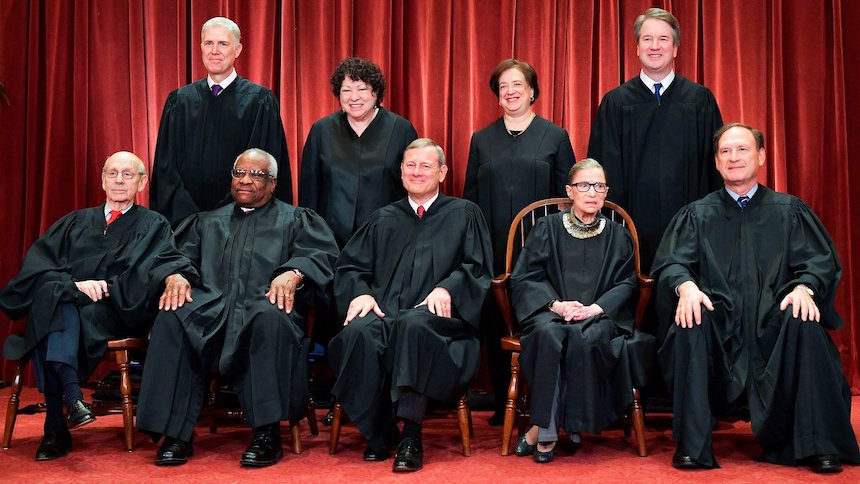Gorsuch sides with liberals as Supreme Court rules in favor of Native American rights in Wyoming hunting case
Published at
(CNN) — The US Supreme Court on Monday sided with a Wyoming Native American tribe, ruling that a 19th-century treaty between the tribe and the state did not expire when Wyoming became a state.
The court ruled in favor of Native American rights in an unusual split where conservative Justice Neil Gorsuch teamed up with the court’s four liberals to form a 5-4 majority.
It’s the latest case where a justice broke with his fellow conservatives. Last week, President Donald Trump’s other appointee, Justice Brett Kavanaugh, sided with the liberals in a 5-4 case against Apple, holding that a group of iPhone owners could bring a lawsuit accusing Apple of violating US antitrust rules.
Cases such as Monday’s treaty rights dispute often defy the usual ideological alignments. More consequential tests of Trump’s two appointees and the depth of their conservatism are likely to come in June, the final month of the annual session, as the justices resolve disputes over, for example, partisan gerrymandering, federal regulatory power, and the separation of church and state.
In the majority opinion, Justice Sonia Sotomayor — joined by Justices Ruth Bader Ginsburg, Stephen Breyer, Elena Kagan and Gorsuch — wrote that an 1868 treaty between the Crow Tribe and the United States in which the tribe ceded most of its territory in modern-day Wyoming so its members would have a right to hunt on “unoccupied” parts of the land did not expire after Wyoming gained statehood.
“There is also no evidence in the treaty itself that Congress intended the hunting right to expire at statehood, or that the Crow Tribe would have understood it to do so. Nor does the historical record support such a reading of the treaty,” Sotomayor wrote in the opinion.
The case concerned Clayvin Herrera, a member of the Crow Tribe who was charged in 2014 with off-season hunting in Bighorn National Forest, according to the court. A Wyoming trial court rejected Herrera’s claim that, per the treaty, he had a right to hunt in the forest, the high court said. A jury convicted Herrera, who then appealed the case to the Supreme Court.
In addition to ruling that the treaty did not expire in 1890 when Wyoming became a state, the court concluded that the Bighorn National Forest “did not become categorically ‘occupied’ within the meaning of the 1868 Treaty when the national forest was created,” but “not that all areas within the forest are unoccupied.”
Justice Samuel Alito wrote the court’s dissenting opinion, which was joined by Chief Justice John Roberts and Justices Brett Kavanaugh and Clarence Thomas.
Alito wrote in his dissent that he believed Herrera was “bound” by a 1995 Court of Appeals decision in Crow Tribe of Indians v. Repsis that held the tribe’s treaty rights ended once Wyoming became a state.
“For these reasons, Herrera is precluded by the judgment in Repsis from relitigating the continuing validity of the hunting right conferred by the 1868 Treaty,” Alito wrote.



